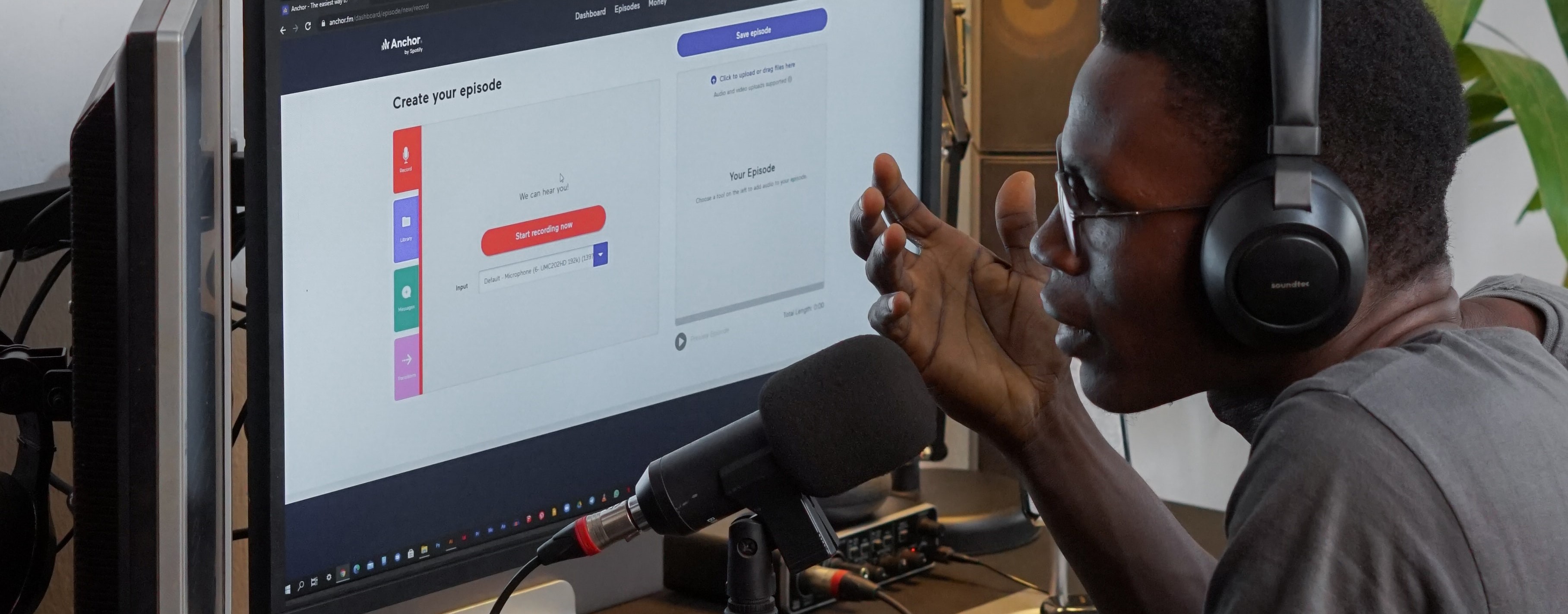There are many unconventional career options gaining popularity that seldom people choose as a life-long career. One of them is a career in podcasting. Over 2 million podcasts are currently streaming on various apps and channels, and the numbers are increasing as we speak. Podcasts are becoming ubiquitous sources of information and entertainment in the USA as the decade progresses. So if conversing with people, articulating an opinion, recording, or cracking smart jokes is your thing, podcasting is the perfect career for you.
A Booming Field
The thought of there being the availability of podcasting jobs would have been pretty far-fetched in the not-too-distant past. The medium was purely a hobby, practiced in bedrooms and basements until recently.
Podcasts were once known as audio blogging, a simple way to share your thoughts and feelings with the rest of the world through an audio file, and it took several decades for it to evolve and change into a profession.
51% of the American population (approximately 144 million) admits to listening to a podcast at least once in their life. Moreover, about 22% of the people (62 million Americans) tend to listen to a podcast every week. With such significant figures, the market is suitable to provide numerous podcast jobs. Furthermore, the jobs will diversify and become more lucrative as the number of podcast listeners grows.
Why Podcasting Is Becoming a Popular Career Option
Here are three reasons why podcasting is becoming an increasingly popular career option.
- Variety of audience: Being a professional podcaster ensures that your content reaches a growing audience. As a result, the emergence of digital culture and excitement is openly shifting to various stages of the digital platform.
- Convenience: Working at your convenience, in your environment, and at your own pace is extremely rare. Being an independent podcaster is a convenient and comfortable profession. More importantly, the pressures associated with it appear to be significantly lower than those associated with a traditional desk job.
- Increasing consumption of live streaming: Over the past couple of years, live streaming of discussion panels, analytical interviews, debates, and general podcasting has exploded. Despite the pandemic, podcasting events were well received by an ever-growing audience.
Steps to Kickstart Your Career as a Podcaster
There are several parts to the planning process of how to become a podcaster.
- Name and Niche of the Podcast: Think and decide on a topic for your podcast—narrow your ideas down to a territory where you can cover multiple episodes. However, make sure that you keep space to expand or branch out on other niche topics. For example, if your niche is health and fitness, you can begin with a podcast on 5 reasons for obesity among Americans.
Similarly, the name of your podcast should be catchy, and it should attract the audience to listen to your thoughts. Think of a name that is not specific to a topic but provides you with an area for expanding.
- Target Audience: Research the demographic group that loves to know more about the niche you will adhere to. Whether your podcast is for your business or an opinion-based talk show, narrowing these points down helps make sense of your format and podcast in general. Knowing your target audience will help you curate your content.
Understand their wants, needs, questions, curiosities, and more, and you'll be more likely to create a show and a description to feed people into your show easily.
- Write a Compelling Podcast Description: You'll need to write a descriptive paragraph about your show to your audience. After the audience members make their way to your show page, this will be the description they read to decide whether or not they want to stick around.
Include the keywords and key phrases your target audience may use to find content like yours in your description. You can also talk about yourself to prove that you are someone worth listening to and spending time with.
- Podcast Artwork: Your podcast will need a cover artwork and could probably benefit from having a piece or two of music. Every podcaster gives their heart and soul to create an epic artwork - a square image that represents your show. You can either hire someone to do the job or experiment with designing apps to portray your vision.
As much as podcasting is an auditory medium, the graphical, visual element representing your podcast plays an important role.
- Decide on Your Podcast Format: The format of a podcast includes length, style, and episode. As a podcaster, you will understand the length and style of episodes your audience prefers as you proceed. The ideal length of an episode is 22-28 minutes. However, hour-long podcasts can also help you scale if you are a people’s favorite.
Moreover, you should publish your podcast consistently. It doesn't matter if your podcast comes out each week, every other week, or once a day. As long as you can get into a rhythm and groove so that your audience knows what to expect, it's okay.
- Podcasting Gear: As a new podcaster, you can get reasonable equipment like a microphone, headphones, pop filter, boom arm, and recording and mixing software. Initially, you can make do with basic gears and then jump to heavy equipment when your podcast reaches millions.
Choose a reliable recording and editing software for your podcasts. Basic editing includes adjusting the frequencies of your audio, trimming filler words like “um”, and investing in noise-canceling equipment or apps.
- Create a Buzz and Get Started: Once you have decided on a date to launch, let your audience know what’s cooking. Leave hints for your audience to keep them tuned and create a buzz for a killer launch. Click the upload button on your hosting platform and watch your words change the world. Keep at least three episodes ready after the launch.

